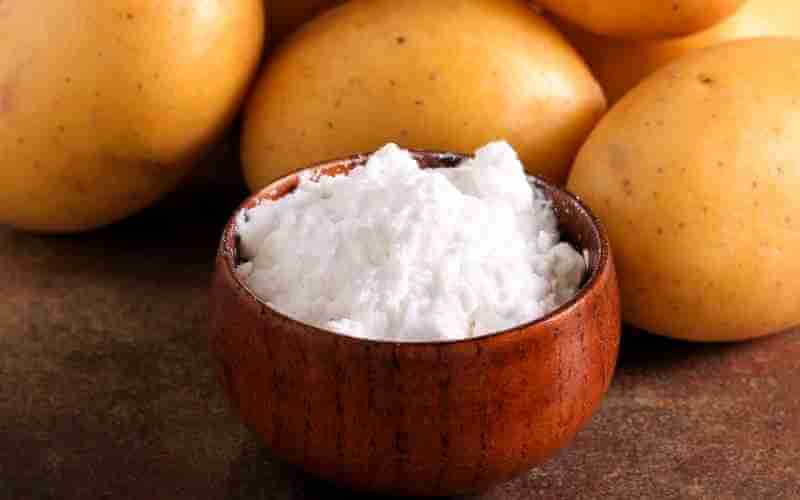Potato flour is an excellent thickening agent in times you need them most. And it does wonders when you want to bake too, but sometimes you might want to replace your flour.
Whether it is because of lack of availability or choice, you would have to replace it. Are there potato flour substitutes, you ask? Well, no need to wonder, there are great replacements for potato flour.
And all of this you shall learn in this guide. So are you ready to make your recipe without potato flour?
Without further ado, let us begin
Contents
What is potato flour?
Potato flour is a time powder substance you can get from completely peeled and trimmed potatoes and then dehydrated potatoes. Potato flour is mostly used in gluten-free recipes.
The flour contains starch enough to hold up water content. That is why it is a good thickening agent. Potato flour, although undergoing a grinding process, keeps many nutrients compared to potato starch.
Many people use potato starch and potato flour interchangeably. However, they are not the same.
And just for other flours, you can use potato flour to bake so many recipes like bread, cookies, muffins, pastries, and other recipes. So, you are welcome to try this out to find out the versatility of this flour.
Are you ready to replace your potato flour? Let us learn the best alternatives for potato flour.
Potato flour substitutes
1. Cornstarch flour
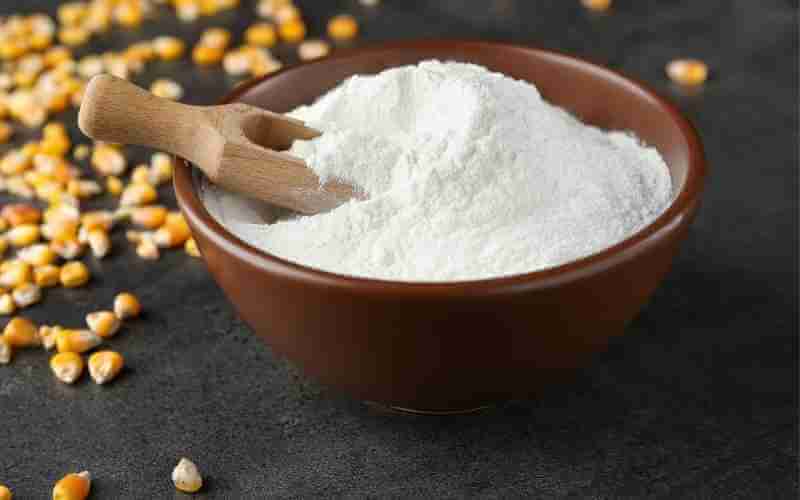
Cornstarch is an excellent substitute for potato flour in recipes that calls for it. However, the only downside is that cornstarch does not possess any potato flavor. So, if you would not mind the flavor, then cornstarch is a great potato flour substitute.
Cornstarch flour works similarly to potato flour would in many recipes. So you can use cornstarch flour to replace potato flour.
Cornstarch has a similar texture and can not overpower other ingredients. However, it is a good thickening agent too, so be careful while adding cornstarch.
You can always adjust your ingredients if you feel you need more cornstarch in your recipe. It is a plus if you are on a gluten-free diet too! But, if you want some potato flavor, then here is a potato flavor option to try out.
2. Mashed potatoes
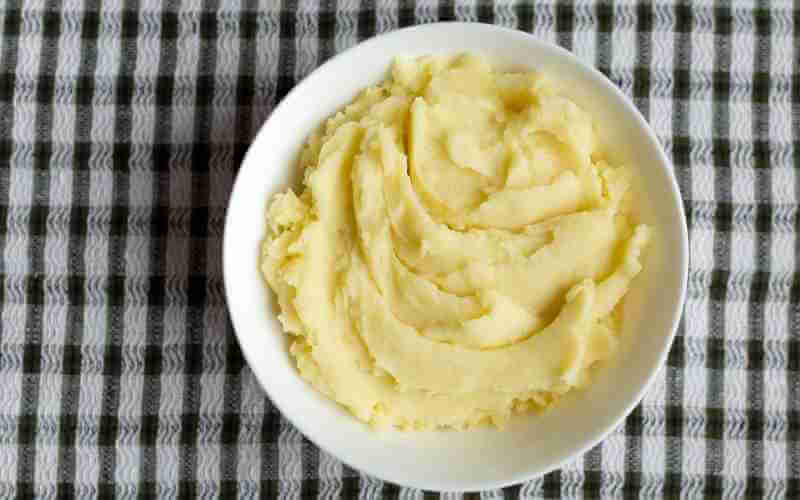
Mashed potatoes are great alternatives if you want to have potato flavor in your recipe. You can use mashed potatoes to make bread, especially when you want it soft.
The downside here, too, is that the mashed potato would not help your bread rise. So, add other flours to make it rise.
More so, since mashed tomatoes contain a relatable amount of water, you should have a little water.
If you add too much water to your mix, then you will end up with sticky bread. In addition, if you add too little water, you end up with hard bread.
So, something in between is what you should look out for. Do not add too much water, or ignore adding enough water. For best results, use ¾ cup of mashed potatoes for every ¼ cup of potato flavor.
3. Arrowroot powder
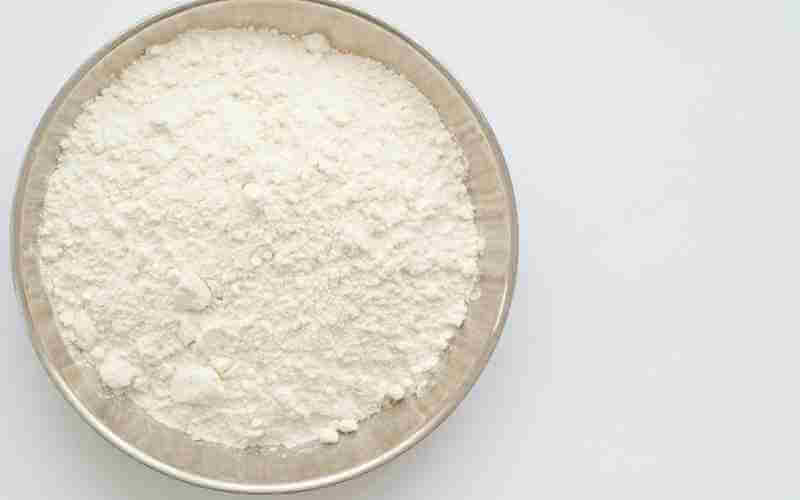
Also known as maranta arundinacea, arrowroot powder is a root flour that is made from arrowroot. This flour is gluten-free and might be a great option for people on a gluten-free diet or people that have a severe allergy to gluten.
Arrowroot has a strong and acceptable nutritional profile. It has more high protein content than potatoes and yams.
So, if arrowroot is this beneficial, then the powder will sure carry many benefits. So, you can incorporate arrowroot powder in your baking when potato flour is not available.
4. Tapioca flour
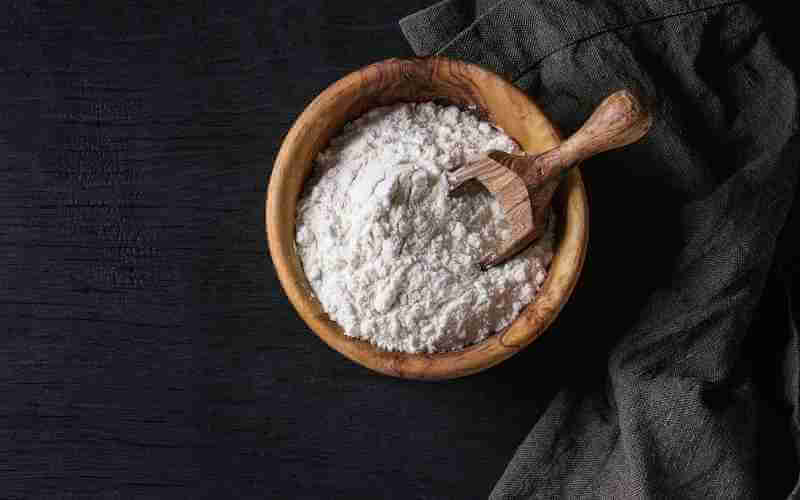
Many people consider tapioca flour the best gluten-free flour for baking. Tapioca flour has a good amount of starch, so it would fit perfectly as a substitute for potato flour.
Tapioca flour has similar qualities to potato flour just that it does not have the potato flavor, just as potatoes naturally do. Tapioca flour would do great as a thickening agent since it has some amount of starch in it.
5. Rice flour
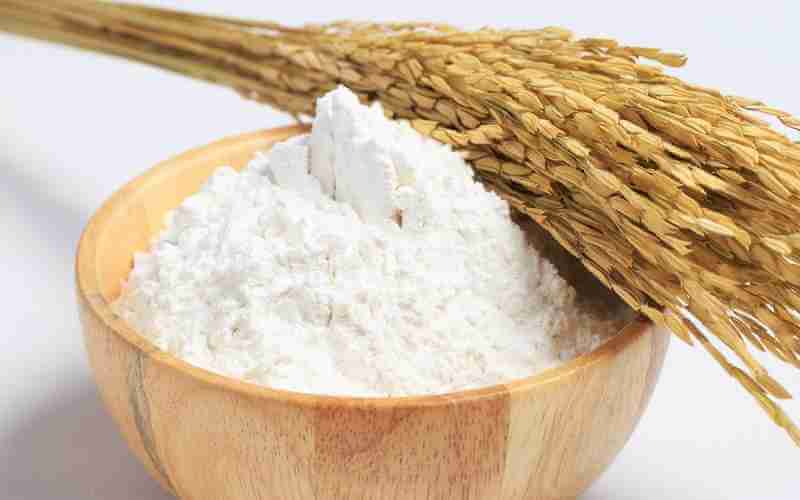
Rice flour is a versatile ingredient because of its nutritional benefits. Rice flour can be white rice flour or brown rice flour and both are great flours and can do wonders in gluten-free recipes.
However, there are differences between the two, the two major differences are, that white rice flour has a subtle flavor and would not alter the taste of your meal.
While brown rice flour can alter the taste of your meal because it is ground with the bran, the nutty flavor is relatively high and can affect the taste of any recipe.
Another difference is that brown rice flour contains more nutrients than white rice flour. So, if you want to add a plain flavor, use white rice flour and for a more refined taste, brown rice flour is the perfect replacement.
6. Quinoa flour
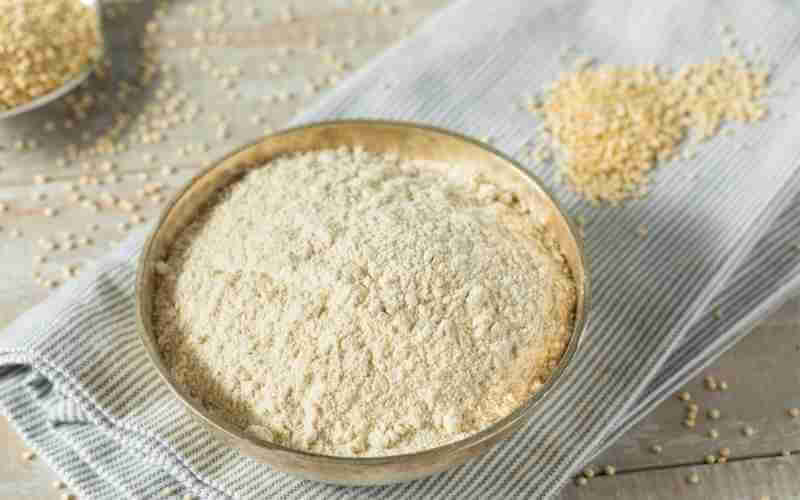
If you are still looking for flour to give a similar flavor to potato flour, then try quinoa flour. Quinoa flour is gluten-free flour that has a strong and defined flavor suitable for recipes that require a defined flavor.
And just like every other flavor, quinoa flour is ground from quinoa seeds; it is commonly used in gluten-free recipes and by vegetarians.
Quinoa has high protein content and so it would fit in as a substitute for potato flour. Quinoa flour is a good thickening agent too.
7. Wheat flour
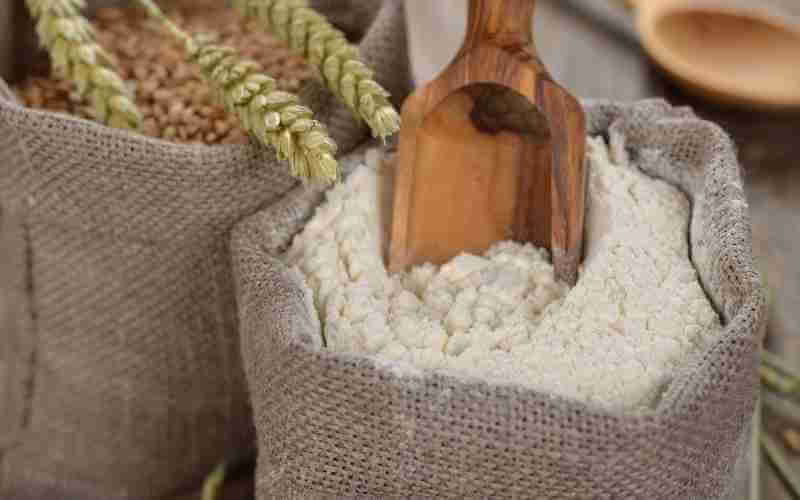
Many baking experts use wheat flour to make most of their desserts. Wheat flour is ground from the kernel grain and it contains fiber and other important nutrients.
Wheat flour is gluten-free and would be a great replacement for a good deal of gluten-free flavors when the time calls for it.
It has a nutty flavor. However, if you are careful enough, it would not overpower your recipe. So, you are welcome to use wheat flour for your recipe.
8. All-purpose flour
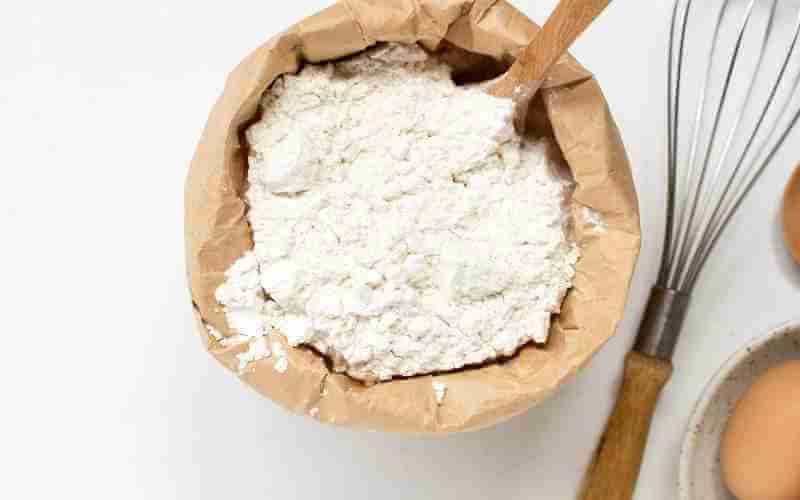
There is one thing that all-purpose flour does well and that is to comfortably replace many flours in recipes that require replacement.
All-purpose flour is great for baking and you can use it instead of potato flour. Bake your cookies, biscuits, and pancakes with all-purpose flour.
9. Coconut flour
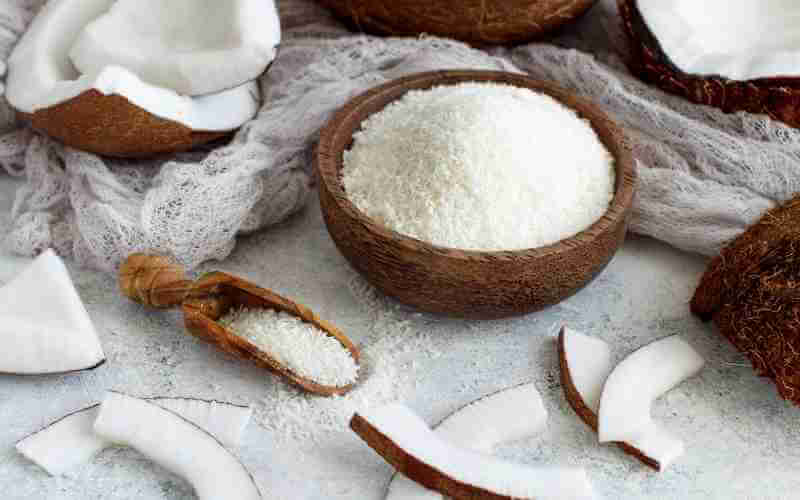
Coconut flour has a notable intense flavor that you can ignore if you are not allergic to coconut. Coconut flour is made from coconut and you can use it when it is time to bake your favorite food.
The downside, however, is that coconut flour absorbs more water than potato flour, so double your recipe.
Read: 9 Best Substitutes For Cassava Flour
Frequently asked questions
Is potato flour the same as potato starch?
No, potato flour is not the same as potato starch. While potato flour is made from a whole peeled potato, cooked and then dried and ground into a fine powder, potato starch is washed out of crushed potatoes, then dried to find bright-white powder.
Can you use potato flour to replace cornstarch?
Yes, cornstarch is an excellent thickening agent just like potato flour. So, you can use both interchangeably to thicken soups or stews.
Conclusion
Potato flour substitutes are very much easy to find because you can find other flours that have akin qualities to potato flour.
Using this flour would, however, depend on what you want in your meal for flavor use mashed potatoes, for some defined flavor use quinoa flour, and for more thickening use tapioca flour or cornstarch flour.
So, it only gets better if you know what you want to do with these lists of replacements.
We hope you can make the right choice.
